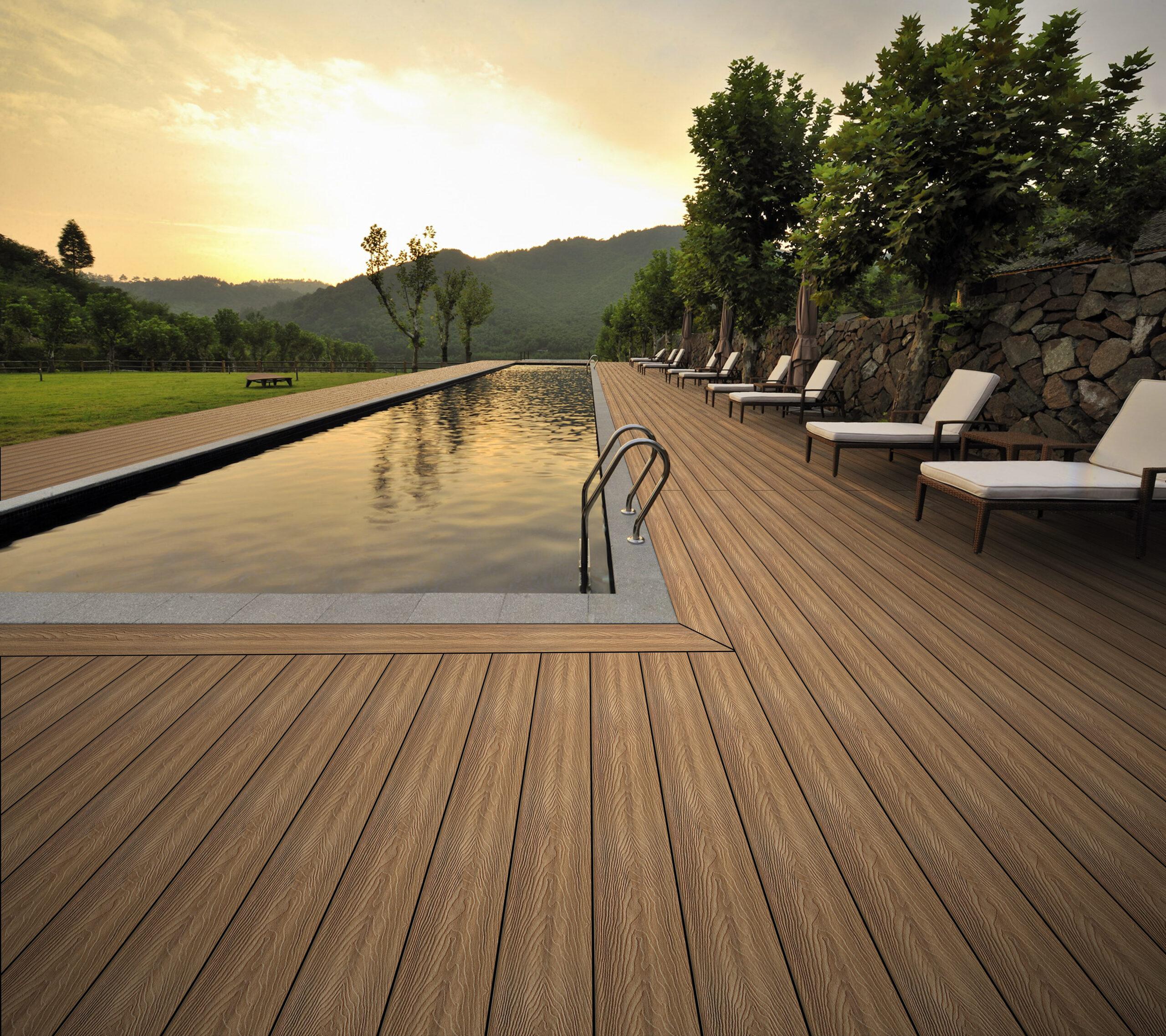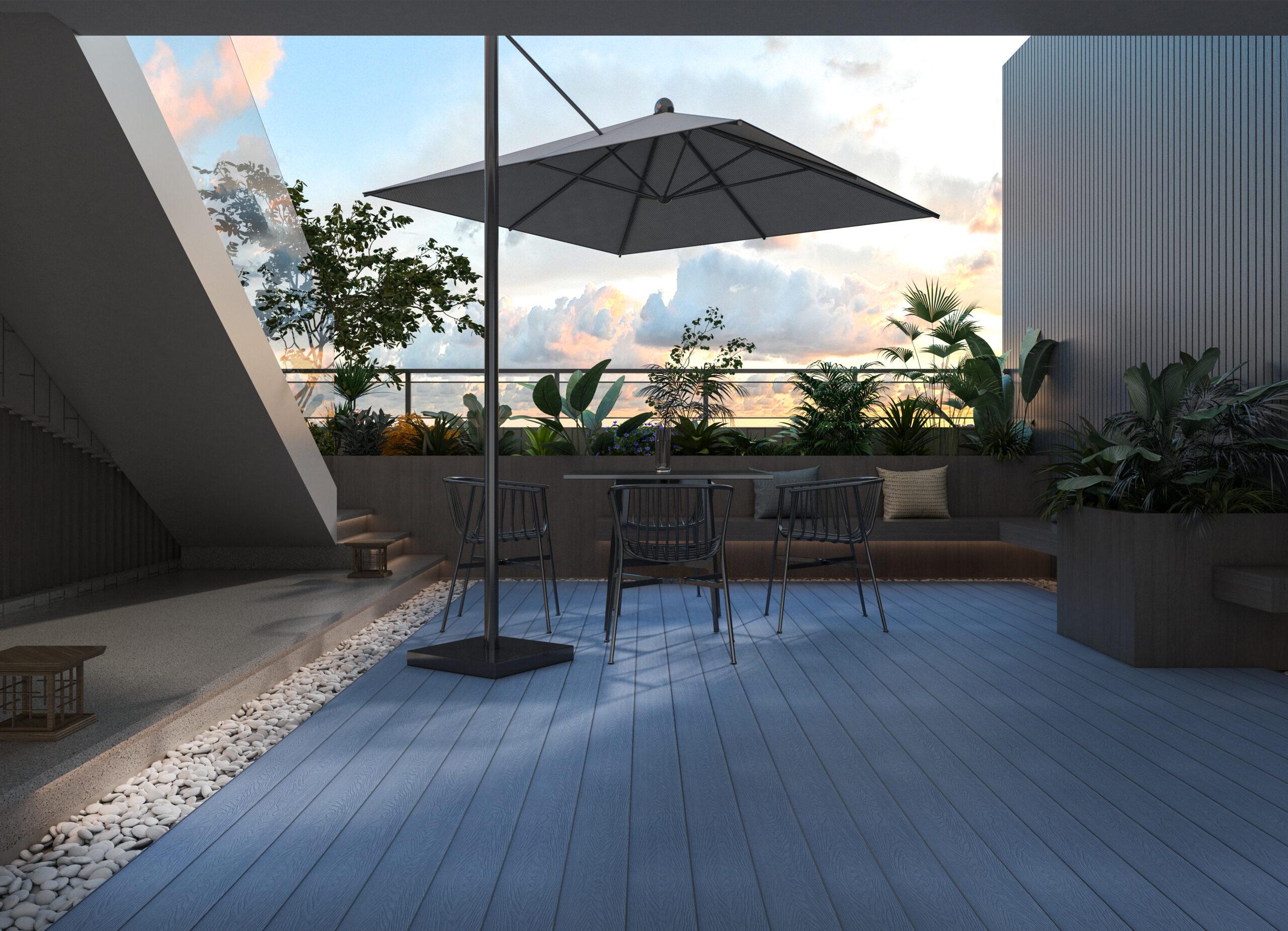When it comes to decking materials, there is no one-size-fits-all solution. Choosing the right decking material for your home is crucial as it not only enhances the aesthetics of your outdoor space but also affects the durability and maintenance requirements of your deck.
With various options available in the market, each boasting its own set of features and benefits, it’s essential to understand the differences between them to make an informed decision that suits your needs and preferences.

Understanding your options
1. Wood Decking
Wood has been a traditional choice for decking due to its natural beauty and versatility. Options such as cedar, redwood, and pressure-treated pine offer varying degrees of durability and resistance to decay and insects.
However, wood decking typically requires regular maintenance, including staining and sealing, to preserve its appearance and longevity.
2. Composite Decking
Composite decking is engineered from a blend of wood fibres and recycled plastic, offering the look of wood without the maintenance hassles. It offers several advantages over traditional wood decking, including:
Low maintenance: Composite decking resists fading, staining, and mould, eliminating the need for regular maintenance.
Durability: Composite decking is highly durable and resistant to rot, decay, and insect damage.
Versatility: Composite decking comes in a variety of colours and finishes, allowing you to customise your outdoor space.
3. PVC Decking
Polyvinyl chloride (PVC) decking is a synthetic material known for its exceptional durability and resistance to moisture, mould, and mildew. PVC boards are typically lightweight and easy to install, making them an ideal option for DIY enthusiasts.
While PVC decking tends to be more expensive upfront, its long-term durability and minimal maintenance requirements make it a cost-effective investment in the long run.
Your Guide to Choosing the Right Decking Material for Your Home
Selecting the perfect decking material for your home involves considering various factors, including:
Budget: Determine your budget constraints and explore decking options that align with your financial plan.
Aesthetics: Consider the visual appeal of each decking material and how it complements your home’s architecture and landscape.
Maintenance: Evaluate the maintenance requirements of different materials and choose one that fits your lifestyle and time availability.
Durability: Prioritize durability to ensure your deck withstands the test of time and environmental factors.
Climate: Take into account your region’s climate and choose a decking material that can withstand temperature fluctuations, moisture, and UV exposure.
Environmental Impact: If eco-friendliness is important to you, opt for sustainable decking materials with minimal environmental footprint.

Conclusion
Choosing the right decking material for your home is a decision that requires careful consideration of various factors, including durability, maintenance, cost-effectiveness, and environmental impact.
By weighing the pros and cons of each option and assessing your specific needs and preferences, you can select a decking material that enhances your outdoor space and provides years of enjoyment for you and your family.
If you are having difficulties choosing the right decking material for your place, you can reach out to Titan Trade Centre, our one-stop-shop for all your building and construction needs. Give us a call at 1800 084 826 or drop an email at sales@titantradecentre.com.au.
FAQs
Which decking material requires the least maintenance?
Plastic and composite decking require the least maintenance out of all the options available.
Is composite decking eco-friendly?
Many composite decking brands use recycled materials, making them a more environmentally friendly option compared to traditional wood decking.
Can I install decking materials myself?
While some decking materials are suitable for DIY installation, others may require professional expertise to ensure proper installation and warranty coverage.





